Why Guinea Fowl Are So Weird (And How I Deal With It)
Guinea fowl are noisy, dramatic, and a little wild. Here’s how I understand their behavior—and keep peace on my not-so-quiet homestead.
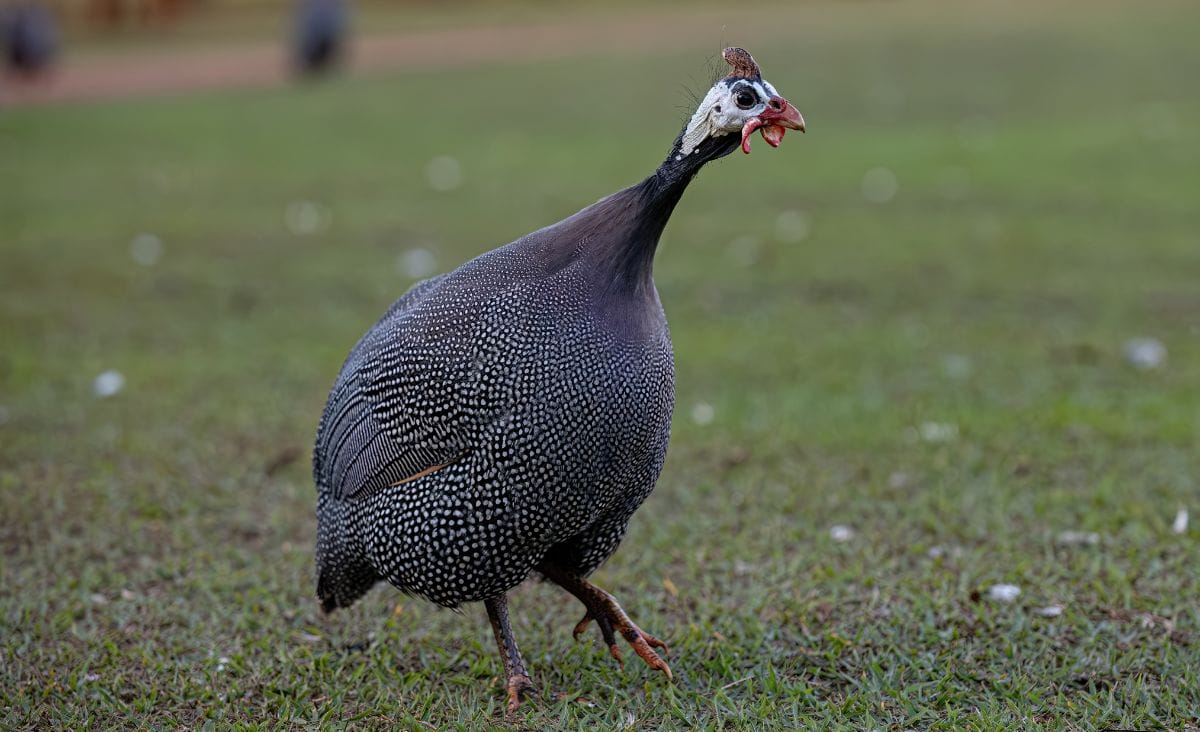
If you’ve ever spent more than five minutes around guinea fowl, you already know: these birds are… different. Between the nonstop chatter, erratic movements, and their refusal to follow anyone’s rules but their own, guineas bring a certain flair to the homestead that’s hard to ignore.
Their eggs are pretty special too. Here’s how guinea eggs compare to chicken eggs if you’ve ever wondered.
They’re wild-hearted birds with instincts that go way beyond the chicken coop—and that’s exactly what makes them both a blessing and a bit of a handful. Over the years, I’ve learned (sometimes the hard way) how to work with their natural behavior instead of constantly fighting against it.
Here’s everything you need to know about guinea fowl behavior, from their social quirks to their love of hiding eggs in impossible places.
Social Life: Tight-Knit and Loud
Guineas are social creatures to their core. While their flocks might look like a chaotic mess, there’s real structure in how they interact and stick together.
Flock Mentality and Pecking Order
Guinea fowl move as one. If one gets separated, you’ll hear the panicked screeching from a mile away. They’re not just being dramatic—okay, maybe a little—they’re wired to stay together. Like most poultry, they also have a pecking order, which means you’ll see squabbles now and then, but it’s part of how they maintain flock balance.
Pair Bonding and Breeding Behavior
One of the quirks that sets guineas apart from chickens is their tendency to form monogamous pairs. A bonded male will stick close to his mate, trailing her all over the yard and acting like a feathered bodyguard. During breeding season, expect more noise, puffed-up egos, and the occasional chase scene.
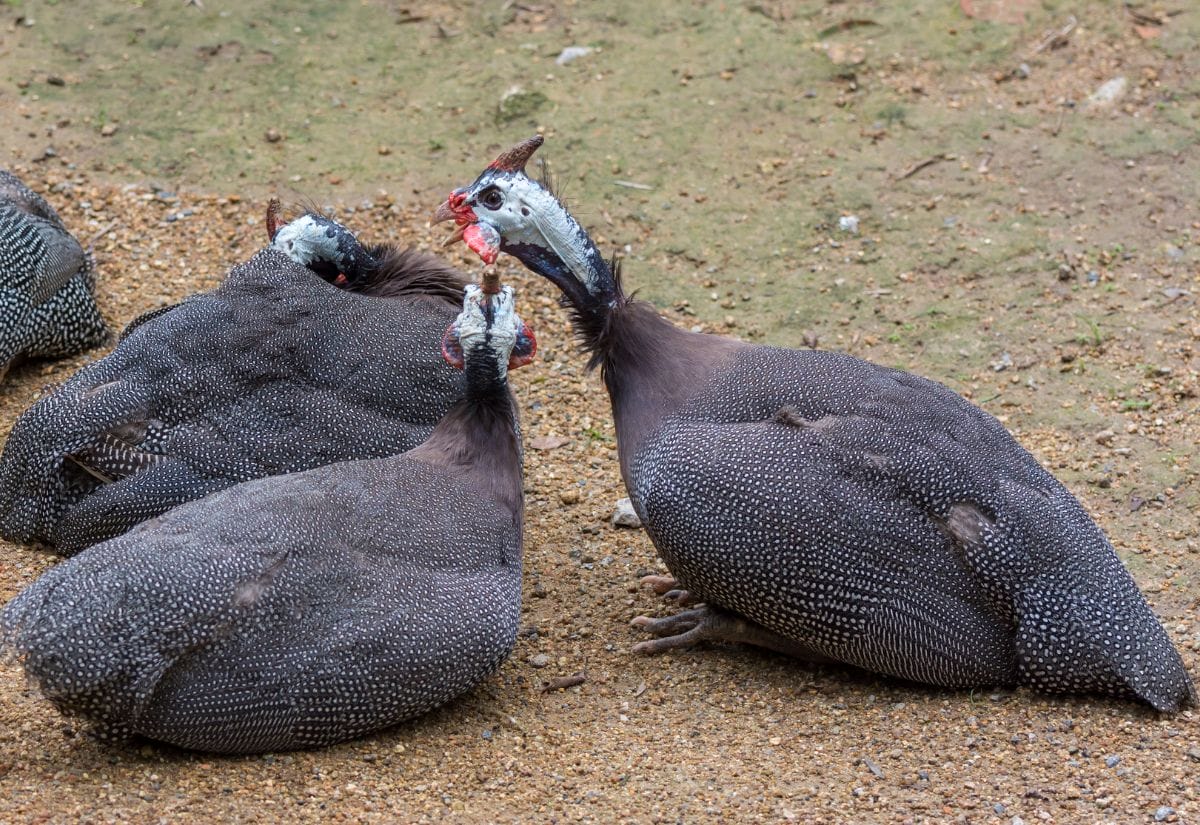
Talkative Doesn’t Even Begin to Cover It
If you’re looking for peace and quiet, guineas probably aren’t your bird. They’re very vocal, and every squawk, chirp, and screech has a purpose (usually).
Alarm Calls and Vigilant Noisemaking
Guineas take their role as homestead watchdogs very seriously. A leaf blows the wrong way? They’ll sound the alarm. A hawk flies overhead? They’re on it. UPS truck? They’ll alert the entire county.
Sure, they’re not always accurate, but their instincts do make them excellent early warning systems for real threats.
Social Sounds and Gender Differences
Guineas don’t just shout about danger—they talk to each other constantly. Males usually have a one-note call, while females use a distinct two-note sound that folks often describe as “buck-wheat” or “come-back.” Learning to tell the difference can help you understand what they’re chatting about—and maybe who’s talking.
The following is a text exchange between my son and myself…
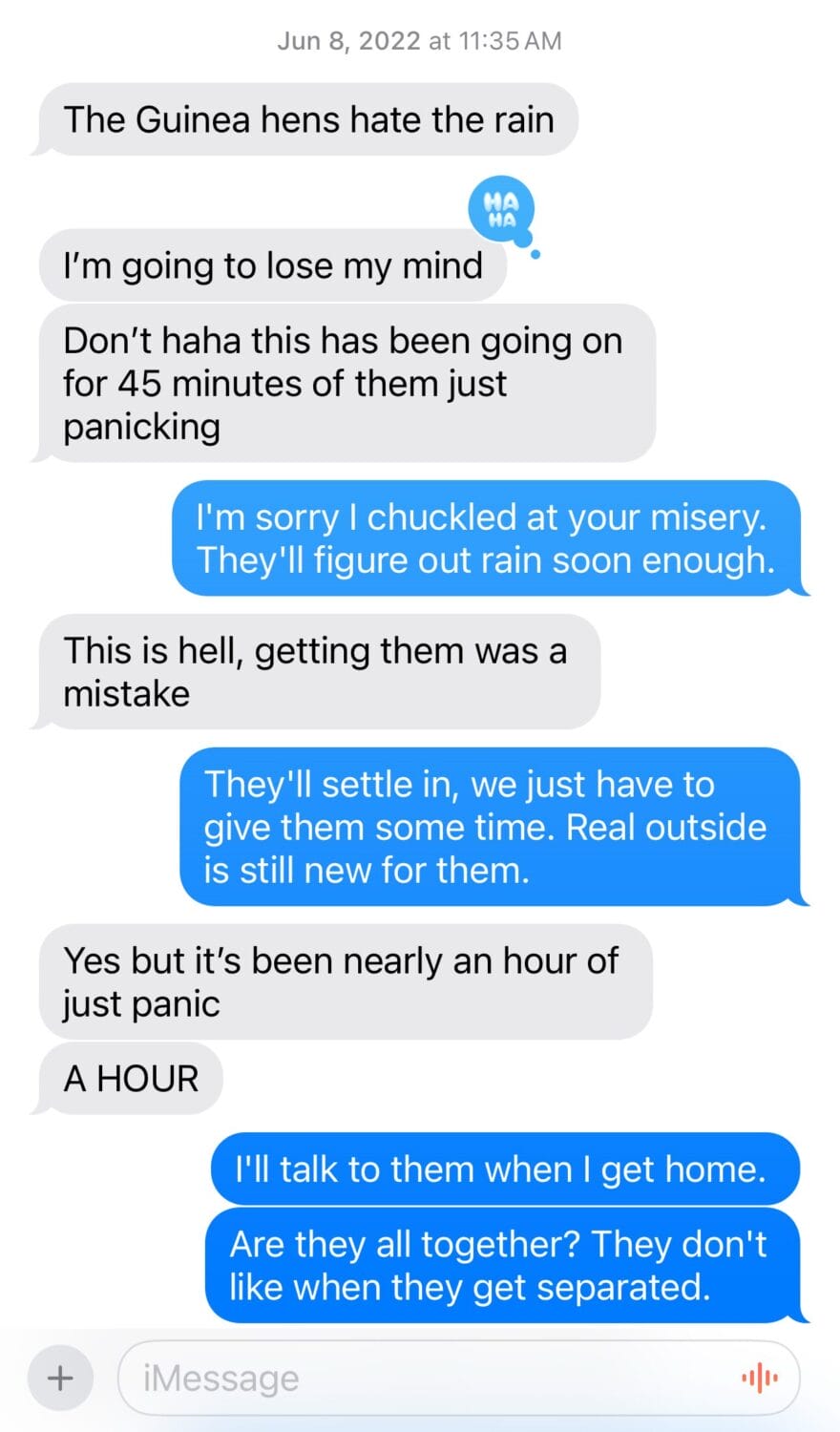
Wandering Ways: Why Guineas Don’t Stay Put
Let’s be honest: guineas aren’t great with boundaries. Unlike chickens, they don’t really do fences. If you want them to stick around, you’ve got to train them—and even then, it’s more of a suggestion than a rule.
Why They Roam
Guineas are built to forage. Their wild ancestry drives them to wander in search of bugs, seeds, and weeds. That’s great for pest control, but it means they’ll cover some serious ground if you let them.
How to Keep Them Close
The trick is training. Start by keeping them confined to their coop for at least six weeks. Feed them there, make it appealing, and you might convince them to come back each night. No guarantees—they are guineas, after all.
The right coop design can go a long way in keeping guineas safe and close to home, as long as you pair it with some solid training.
Chickens vs. Guineas: Free-Ranging Differences
Chickens like routine. Guineas like chaos. Chickens return to their coop. Guineas roost in trees, on top of buildings, or wherever they feel like at the moment.
If you’re letting your guineas free-range, prepare for a bit of cat-herding. Or in my case, guinea-herding. I’ve been known to chase mine around the neighborhood like a lunatic trying to convince them their own yard is actually a fine place to be.
As you can see, they may still take off, despite your efforts to train them.
Nesting Nonsense: Where Are the Eggs?!
If you’re used to chickens laying neatly in their boxes, guineas will test your patience. These birds hide their eggs like they’re prepping for a backyard Easter egg hunt.
Sneaky Nesting Habits
When a guinea hen suddenly disappears during the day, she’s likely hiding out in the tall grass laying a clutch. Follow discreetly and you might uncover her secret stash—unless she outsmarts you again.
Encouraging Nesting in the Coop
Want guineas to lay where you can actually find the eggs? Good luck. But placing fake eggs (wooden or ceramic) in nesting boxes can help guide the more cooperative hens. Just don’t count on 100% compliance.
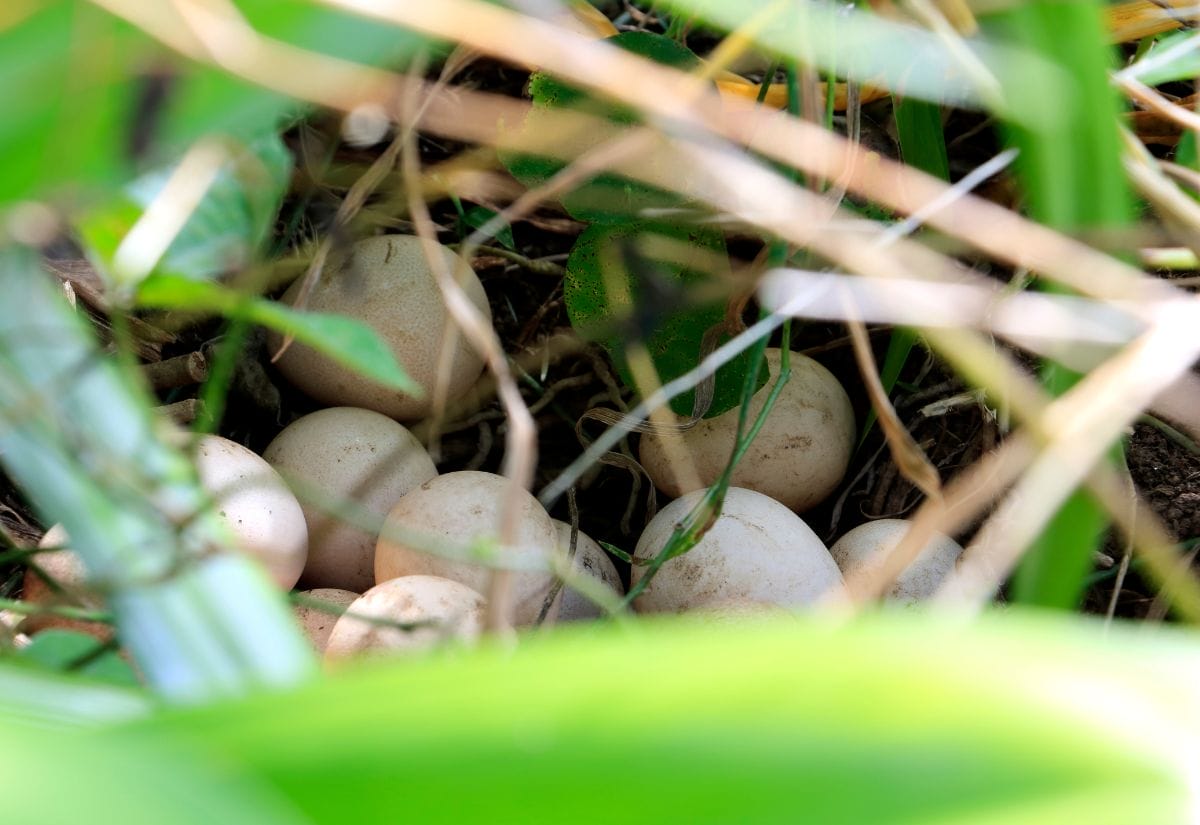
Guinea Fowl Confusion? Here Are the Answers
Struggling with noisy, wandering guineas? Pin this for later!
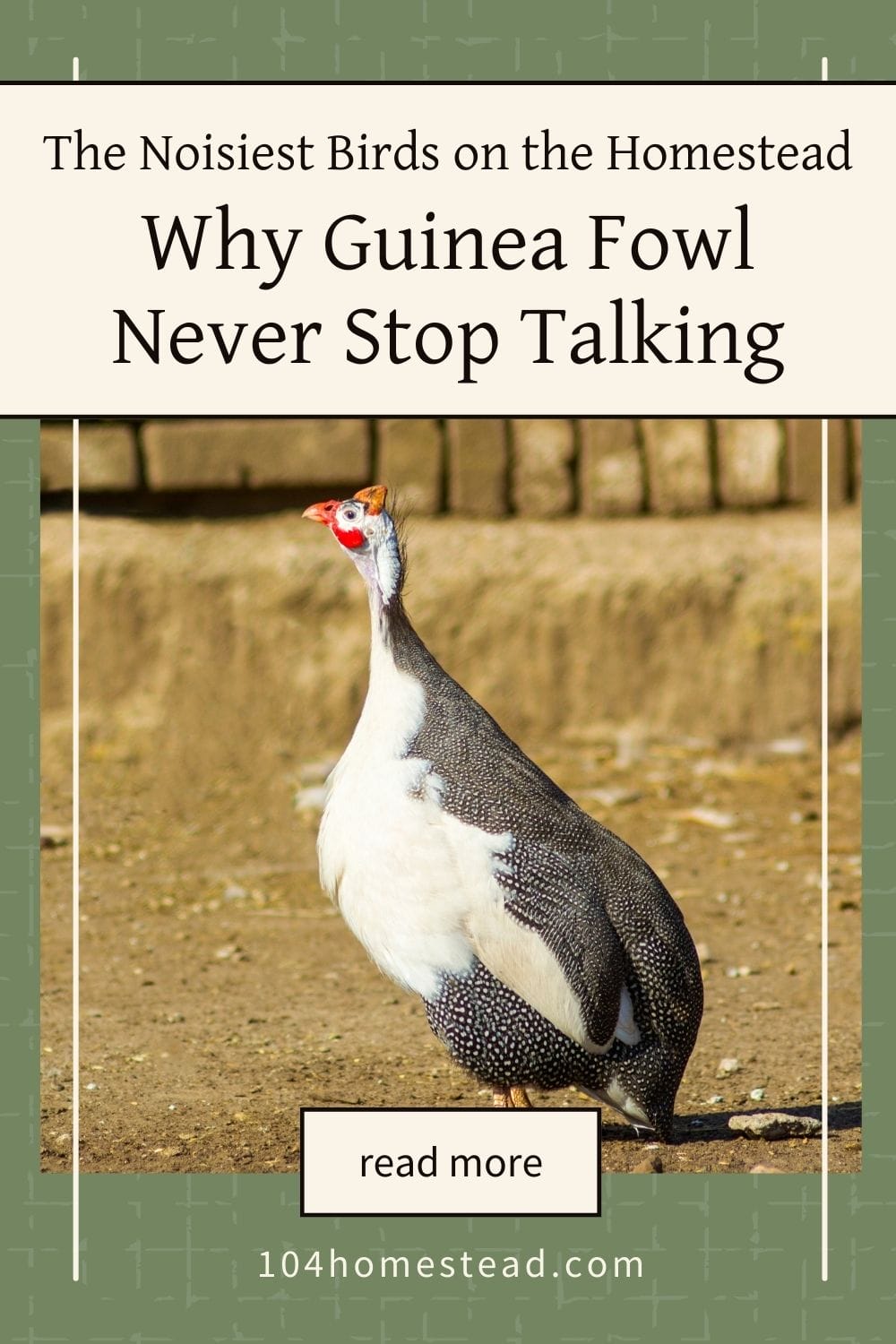
Guineas aren’t for the faint of heart, but once you learn their rhythm, they’re surprisingly rewarding. Their tight-knit social bonds, over-the-top alarm system, and “free spirit” attitude make them one of the most entertaining birds you can raise.
If you’re thinking about adding them to your homestead—or already have a few raising eyebrows and causing chaos—understanding how they tick is the first step in managing the madness.
Got guinea fowl? What’s the weirdest thing yours have ever done? I’d love to hear your stories in the comments!




